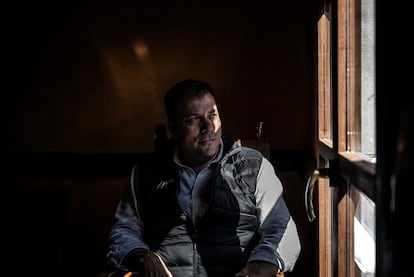Chinatown’s small businesses fight against Trump’s customs

Grand Tea & Imports sell tea and cultural goods. The family -owned company imports 90 percent of its range from China. Now the last Chinese cargo vessels, which are not affected by Trump’s tariffs at 145 percent, are on their way into US ports. Therefore, at Grand Tea & Imports, it has been chosen to pause all new purchases. They are waiting for clarity in how prices will be affected.
The plan is to sell out the stock that is available, to avoid raising prices.
– We have always tried to keep prices low for our products to be available to immigrant groups in Chinatown, which is largely working class, says Karen Liu.
Tea is not fresh, and Grand Tea & Imports have warehouses that are expected to last for just over a year. Other stores will be hit harder when customs come into force – at least initially – and several entrepreneurs have already panic -purchased goods to build on their warehouses.
– Even if we try to keep out as long as possible, others will be forced to raise. We are small business owners without lawyers, or customs specialists who can help us find alternative import routes. And so we have very small profit margins. So yes, I’m worried, says Karen Liu.
One that has already been affected is Hei Chan who runs a grocery store that has been in Chinatown since the 1960s. He writes in an email that the profit margins were already minimal since before and that his store Kam has been forced to raise prices. They have also paused some deliveries, including special goods such as dried seafood and sweets.
« There is no reason to worry. The world continues as it has always done. This is a question between countries. We are a small company and focus on being there for our local customers. No one knows what will happen next. We do our best and take things as they come, » he writes.

Hei Chan has been halved the orders on lunar cake eaten during the Chinese holiday Moon party, and which is an important product for comb man. Other goods have been bunked up before the customs came into force, but their storage space is limited.
Do you think that small businesses in Chinatown are unfairly affected by the trade war?
« There is no justice or injustice – it is just business. We must all handle the same reality. If the governments can speak reason with each other, there is the opportunity to find a solution that works for everyone. But so far we focus on what we can control, » responds Hei Chan.
US President Donald Trump has turned in his customs policy in the past and Karen Liu hopes for his attitude towards China will mitigate. Chinatown is perhaps the hardest hit, but large companies will also feel the customs. Politics is unsustainable in the long term, she says.
Karen Liu describes how many customers feel upset and frustrated. They think that China, which manufactures a large part of what they use every day, is treated unfairly.

She herself feels powerless, and afraid that customs will also affect the traditions of the Chinese immigrant group.
– We want to be able to continue importing what is needed for Chinese New Year, for important holidays, weddings, funerals – all that gives us a sense of community. If we cannot take in such goods in an affordable way, it can have long -term consequences for how we express who we are.







